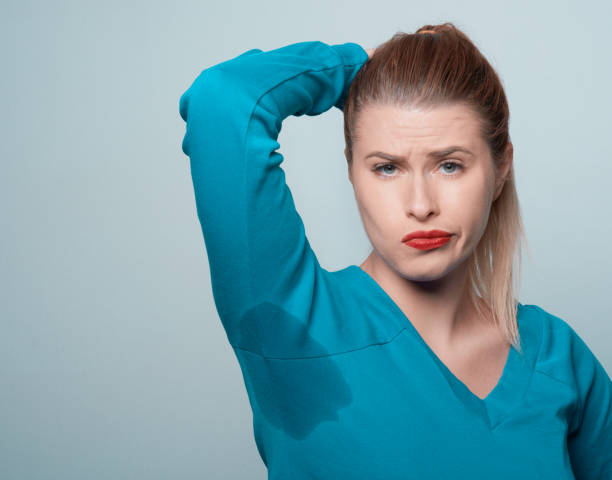Health Conditions
How to Identify and Treat the Underlying Health Issue Causing Excessive Sweating
Do you find that you are sweating continually, even when you are not engaging in any activity that requires you to strain yourself physically? In spite of the fact that excessive sweating can be both annoying and uncomfortable, it is essential to have a solid understanding of the underlying health issues that may be the cause of this condition. The purpose of this article is to examine the numerous circumstances that can cause excessive sweating, as well as to describe the various methods that can be utilized to manage and cure this widespread problem.
Understanding the Causes of Excessive Sweating
An excessive amount of sweating, commonly referred to as hyperhidrosis, can be brought on by a number of different circumstances. There is a possibility that hyperhidrosis itself is the reason. Those who suffer from this ailment have sweat glands that are hyperactive, which causes them to create more perspiration than is required to maintain a healthy body temperature. The problem of hyperhidrosis can manifest itself in a variety of locations on the body, including the face, hands, feet, and armpits. It frequently results in a significant amount of discomfort and has the potential to have a detrimental effect on a person’s self-esteem as well as their quality of life.
There is also the possibility that excessive sweating is caused by thyroid dysfunction, more specifically hyperthyroidism, which is an overactive thyroid of the thyroid. An increase in the amount of perspiration that is produced can be a consequence of the thyroid gland producing an excessive amount of thyroid hormone. Anxiety, rapid heartbeat, and weight loss are some of the additional symptoms that are associated with hyperthyroidism.

Health Conditions That Can Cause Excessive Sweating
Hyperhidrosis and thyroid dysfunction are two of the many health disorders that can cause excessive sweating. Other illnesses can also cause excessive sweating. Menopause is an example of such a condition. Because of the hormonal shifts that occur during menopause, women may experience hot flashes, which frequently cause them to sweat excessively. Due to the fact that it can happen at any time, even when they are sleeping, this sweating can be very irritating for women who are going through the menopause.
A number of drugs have the potential to induce excessive sweating as a side effect. The production of sweat is known to be increased by several drugs, including antidepressants, antipyretics, and various blood pressure medications. If you are taking any medicine and you are experiencing that you are sweating excessively, it is imperative that you visit with a healthcare practitioner in order to determine whether or not the medication is the reason of the sweating.
Lifestyle Factors That Contribute to Excessive Sweating
There are a number of lifestyle factors that can lead to excessive sweating, in addition to the fact that health disorders play a key role because of their influence. Weight gain is one of these factors. Being overweight might cause an increase in sweat production since it requires the body to exert more effort to maintain a constant temperature. Wearing clothing that is too tight or made of synthetic materials can also cause heat and moisture to be trapped, which can result in increased perspiration.
Anxiety and stress are two other factors that might cause excessive perspiration. Whenever we experience feelings of stress or anxiety, our sympathetic nervous system becomes active, which results in an increase in the amount of perspiration that we produce. This phenomenon is frequently referred to as perspiration brought on by stress. Discovering healthy strategies to manage stress, such as engaging in regular exercise or practicing relaxation techniques, might be helpful in reducing the excessive perspiration that is produced by these causes.

When to Seek Medical Help for Excessive Sweating
If you are experiencing problems with excessive sweating, it is critically necessary to seek the advice of a qualified medical practitioner in order to ascertain the underlying source of the problem and devise a suitable treatment strategy. Persistent and excessive sweating may be an indication of a more serious underlying health issue, despite the fact that sweating on occasion is considered normal. Your doctor will be able to assess your symptoms, carry out any tests that are required, and offer advice on the most appropriate course of action to take when dealing with your condition.
Treatment Options for Excessive Sweating
When it comes to excessive sweating, there are a number of treatment options available, and these alternatives vary based on the underlying cause. For people who suffer from hyperhidrosis, it is possible that antiperspirants or other topical therapies, as well as prescription drugs, will be advised. When the condition is severe, it may be necessary to consider surgical operations or Botox injections as a means of temporarily or permanently interrupting the sweat glands.
The treatment of the underlying thyroid malfunction is essential for patients who suffer from hyperthyroidism in order to effectively manage excessive perspiration. Either the use of medicine to control the levels of thyroid hormone or, in some instances, the removal of the thyroid gland through surgical means may be required. It is absolutely necessary to collaborate closely with a knowledgeable medical practitioner in order to ascertain the treatment strategy that is most suitable.

Tips for Managing Excessive Sweating
The management of excessive sweating can be accomplished by a variety of lifestyle adjustments and self-care measures, in addition to the medicinal treatments that are available. Among the suggestions are:
- Wearing loose-fitting, breathable clothing made of natural fibers like cotton.
- Using absorbent materials or sweat-wicking fabrics to help keep the skin dry.
- Avoiding triggers such as spicy foods, caffeine, and alcohol, which can increase sweat production.
- Practicing good hygiene by showering regularly and using antiperspirants or deodorants.
- Implementing stress-reduction techniques like deep breathing exercises or meditation.
Conclusion
Excessive sweating can be a bothersome and humiliating problem, but there are remedies. Individuals might find relief and regain their confidence by learning about the underlying health issues that can cause excessive perspiration and seeking proper medical care. Whether the cause is hyperhidrosis, thyroid dysfunction, or another reason, there are therapeutic choices and lifestyle adjustments that can help. Don’t let excessive sweating hold you back; take control of your health and get solution for this annoying problem.
Please keep in mind that the information provided here is just for informative purposes and should not be construed as medical advice. Always seek the advice of a healthcare expert before diagnosing or treating any health concern.
Trusted Health, Wellness, and Medical advice for your well-being


